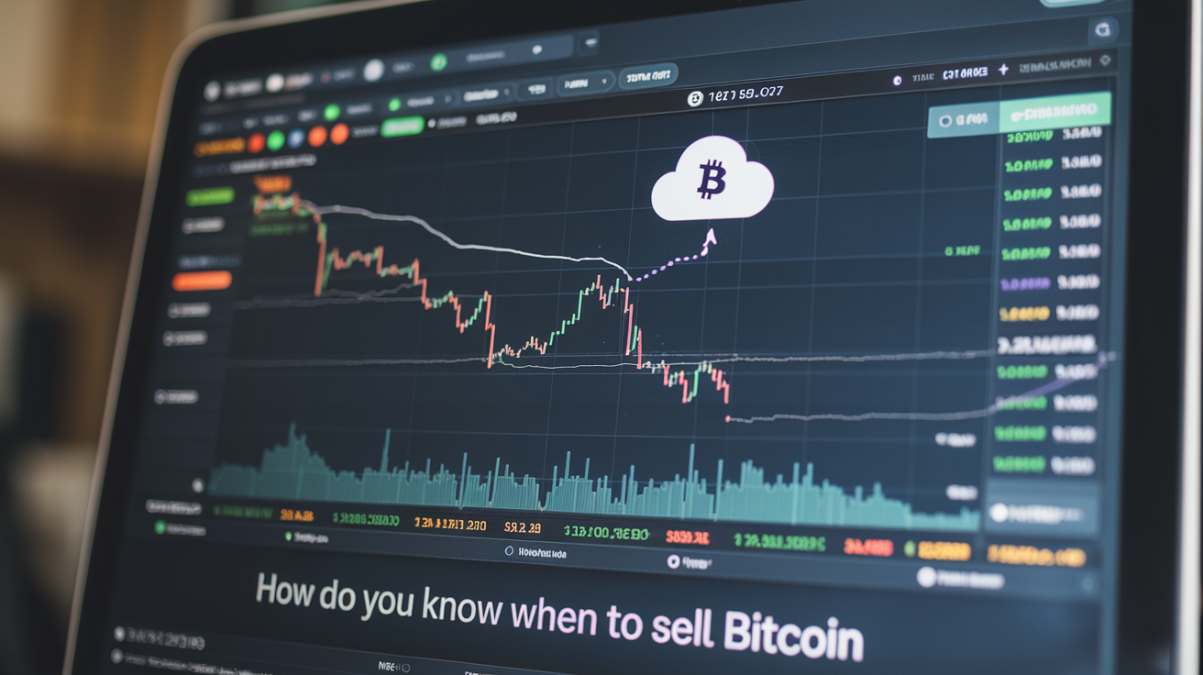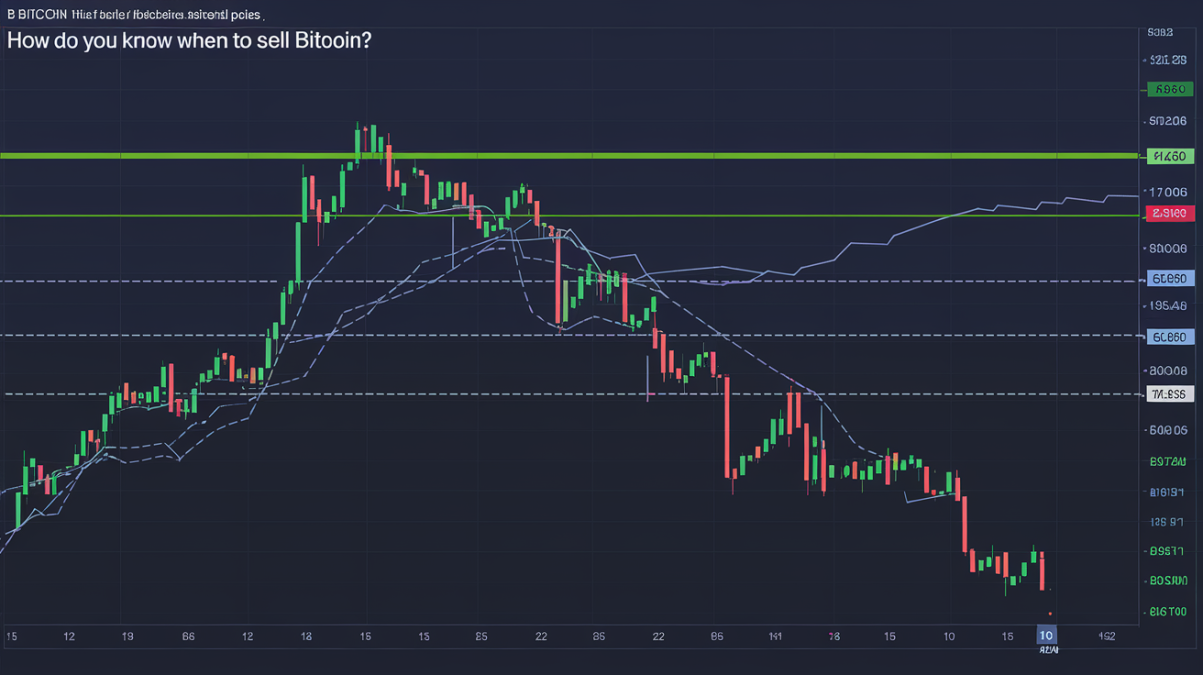Introduction
When to Sell Bitcoin: Since its launch in 2009, Bitcoin has revolutionized the global financial landscape. While many people focus on when to buy Bitcoin, the question of how do you know when to sell Bitcoin is equally important. Knowing the right time to sell can help maximize profits and minimize losses, yet this decision can be complex and emotionally charged.
In this article, we’ll explore the factors that indicate it’s time to sell your Bitcoin. Whether you’re a seasoned investor or a curious newcomer, understanding the signs of when to sell can make a significant difference in your overall cryptocurrency journey.
1. Market Trends: Analyzing the Bigger Picture

When to Sell Bitcoin: Bitcoin’s price is notoriously volatile. Monitoring market trends can help you gauge whether the current price surge is part of a long-term upward trajectory or a short-lived spike.
2. Setting Financial Goals
Establishing clear financial goals helps you decide when to sell. Are you seeking long-term wealth or short-term gains?
3. Recognizing Overvaluation

When to Sell Bitcoin: Bitcoin can become overvalued due to hype or speculation. Learn to spot these phases to capitalize before a crash.
4. Following Technical Indicators
Indicators like RSI (Relative Strength Index) and moving averages can guide your selling decisions.
5. Responding to Regulatory Changes
When to Sell Bitcoin: Government regulations can drastically impact Bitcoin prices. eep abreast of regulatory updates that might impact your investments.

6. Assessing Personal Financial Needs
If you need immediate funds or have achieved a significant gain, it may be time to sell.
7. Learning from Historical Cycles
Bitcoin’s past cycles of boom and bust provide valuable insights for predicting future movements.
8. Navigating Media Influence
Media can create both hype and fear, influencing Bitcoin’s market perception. Learn to separate fact from speculation.
9. Evaluating Risk Tolerance
Assess your comfort with risk to decide whether to hold or sell your Bitcoin.
10. Exit Strategies: Planning Ahead
Developing a clear exit strategy can prevent emotional decisions and ensure profit maximization.
11. Common Mistakes to Avoid
Avoid panic selling and falling victim to ‘FOMO’—Fear of Missing Out.
Conclusion: When to Sell Bitcoin
When to Sell Bitcoin: Selling Bitcoin can be a challenging decision, but understanding market trends, setting clear goals, and planning ahead can lead to more informed choices. While no one can predict the market with certainty, being aware of the signs to sell can help secure your financial interests.
FAQs: on When to Sell Bitcoin
1. Should I sell my Bitcoin during a market crash?
Divesting amidst a market downturn can result in substantial financial losses. Assess whether the dip aligns with broader market corrections or temporary volatility.
2. Is it better to hold Bitcoin long-term?
Long-term holding, known as ‘HODLing,’ has historically benefited investors. However, this strategy depends on your risk tolerance and financial goals.
3. Can I sell a portion of my Bitcoin instead of all of it?
Yes, partial selling allows you to secure profits while maintaining exposure to potential growth.
4. What if I miss the peak price?
It’s difficult to time the market perfectly. Selling near the peak or when your goals are met is a reasonable approach.
5. How do I avoid panic selling?
Setting predetermined sell limits and having a clear strategy can help you avoid impulsive decisions.
6. Should I sell Bitcoin if a more promising cryptocurrency emerges?
If a new cryptocurrency shows strong potential and better fundamentals, diversifying or reallocating some of your Bitcoin holdings might be worth considering.
7. How do I know if Bitcoin is losing its relevance?
Stay informed about Bitcoin’s market share, development activity, and its role in the broader financial ecosystem. Declining interest or usage could indicate a loss of relevance.
8. Is it wise to sell Bitcoin before tax season?
Selling before tax season may help with tax planning, but it’s crucial to understand the capital gains implications




